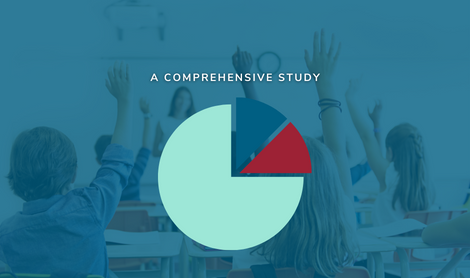NACSA Blog
Press Releases
 |
NACSA President Tapped by National Journal to Launch Education Expert BlogNational Association of Charter School Authorizers’ (NACSA) President and CEO Greg Richmond joined fellow education leaders today to launch the National Journal’s Education Expert Blog (http://education.nationaljournal.com). The Education Expert Blog will feature … |
 |
NACSA President Applauds Findings of New Charter School StudyThe National Association of Charter School Authorizers (NACSA) President and CEO Greg Richmond released the following statement today in response to a report by the Center for Research on Education Outcomes (CREDO) … |
 |
NACSA President Emphasizes Role of Public Officials in Increasing the Quality of the Charter SectorIn celebration of National Charter School Week, President and CEO of the National Association of Charter School Authorizers (NACSA) Greg Richmond headlined a panel discussion entitled Chartering the Course: The Leadership Role … |
 |
National Association of Charter School Authorizers Announces National Advisory BoardThe National Association of Charter School Authorizers (NACSA) has announced twelve individuals who will serve as members of their National Advisory Board. NACSA’s National Advisory Board is composed of leaders from some … |
 |
Letter to Governor SpitzerOver the past decade, the State of New York has made the right moves to ensure a system of high quality public charter schools. Several provisions found in Assembly Bill 4307-B approved … |
 |
State of Charter Authorizing ReportAuthorizing is the most consequential public school governance reform of the past two decades. For the last 20+ years, authorizers have been creating a new landscape, where school autonomy—balanced by fierce accountability … |
 |
NACSA’s CSP Guidance for Management OrganizationsAs federal education programming has shifted over the years to be more focused on high-quality outcomes for students, communities desiring a charter school have increasingly turned to already-proven, successful educational models to … |
 |
Higher Education Institutions (HEIs) AuthorizingQuality authorizing can exist within many contexts and structures. One of those contexts is within higher education institutions (HEIs). We examined how and what HEIs contribute to the charter schools’ landscape. This … |
 |
SXSW EDU 2023 Conference ProposalsNACSA has submitted two innovative and exciting session proposals for The SXSW EDU 2023 Conference (March 6-9); now we need your help. The South by Southwest (SXSW) EDU Conference brings together the learner, the practitioner, … |
 |
Authorizing by the NumbersWe spend plenty of time talking about the why and how of our work, as we seek to ensure more high-quality, innovative, and equitable educational opportunities for children. But every few years, … |
 |
Supplementing, Not Replacing: How Multiple Measures WorkWe can hope (or imagine) that all students come to school every day on grade level, ready to learn. But the reality is, some students have been totally or partially disengaged from school, and this impacts their academic learning. |
 |
NACSA Statement on the Department of Education’s Final Regulations for CSPAfter reading the more than 300 pages of final Charter Schools Program grant competition criteria and regulations, we thank the Department for listening and taking seriously concerns raised by many in the … |
 |
COVID-19 Recovery: The Real CSP PriorityAs we begin our COVID-19 recovery efforts, families and communities are demanding innovative, community-centered, high-quality educational opportunities that meet the unprecedented challenges students are facing. The charter school sector is at the … |
 |
NACSA Statement on 4th U.S. Circuit Court Ruling in Peltier v. Charter Day SchoolThe National Association of Charter School Authorizers (NACSA) is pleased with the U.S. Court of Appeals for the Fourth Circuit’s en banc decision today in Peltier v. Charter Day School, holding that … |
 |
Measuring Innovations Can Take Trial and ErrorThird in a series David Greenberg VP, Authorizer Learning & Development What if your local high school was evaluated solely on its student achievement on state reading and math assessments, paired with … |